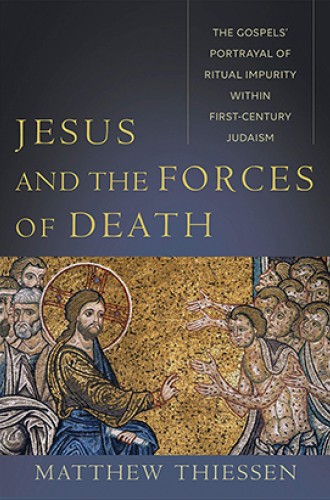Interpreting Jesus’ healings as a conflict with purity laws is dead wrong
Jesus’ conflict, Matthew Thiessen argues, was with the forces of death.
The Gospels portray Jesus cleansing lepers, healing a hemorrhaging woman, giving life to the dead, casting out unclean spirits, and healing on the sabbath. A long tradition of interpretation reads these stories as evidence that Jesus disregarded the Torah, particularly its purity laws, to set people free from their ailments and from a religious system that held them down. Matthew Thiessen demonstrates that this interpretive tradition is dead wrong.
According to Thiessen, the Gospels present Jesus as a Torah-observant Jew who honors the purity laws and observes the sabbath. Jesus does not undermine the purity laws; instead, he overcomes the powers of death. People with skin diseases, hemorrhaging women, corpses, and unclean spirits are in a state of impurity. Rather than disregarding their impurity, Jesus overcomes it with the holy power of life.
Christians who misconstrue Jesus’ conflict with the forces of death as a conflict with impurity laws tend to slander ancient Judaism, inflicting continuing injustice upon contemporary Jews and diminishing Christian theology in the process. Far too much Christian scholarship, Thiessen argues, amounts to “religious apologetics masquerading as historical research.”





